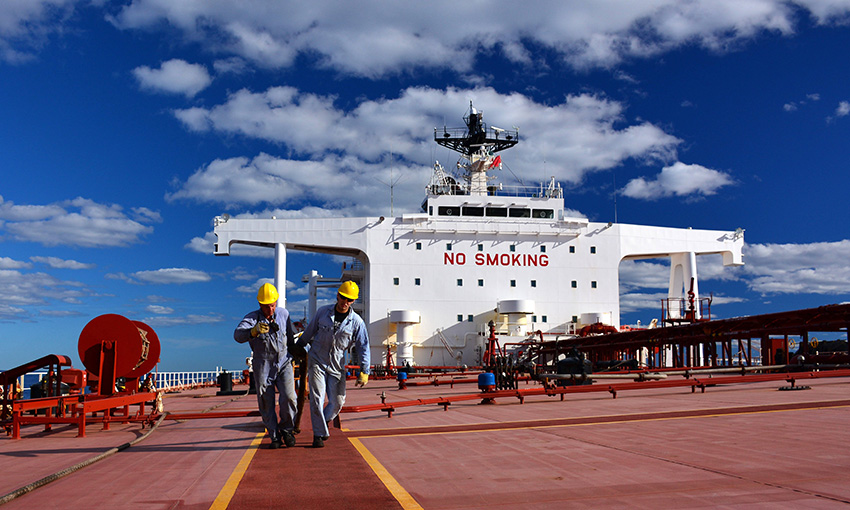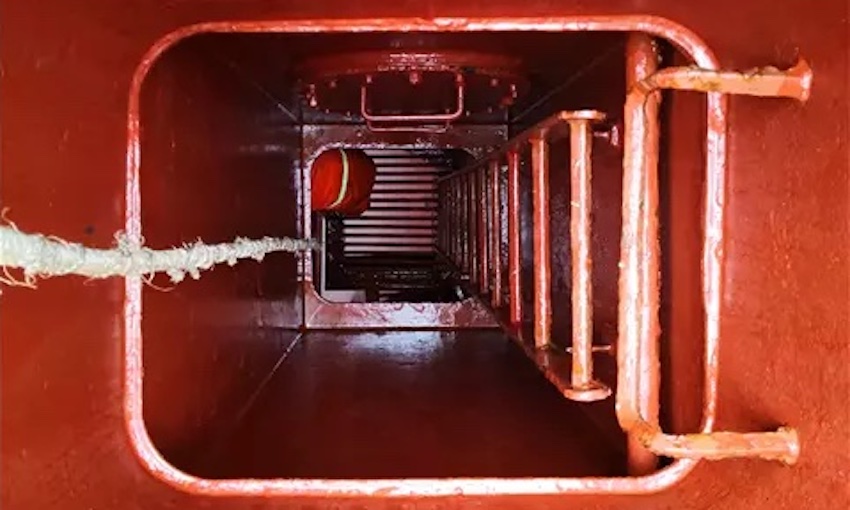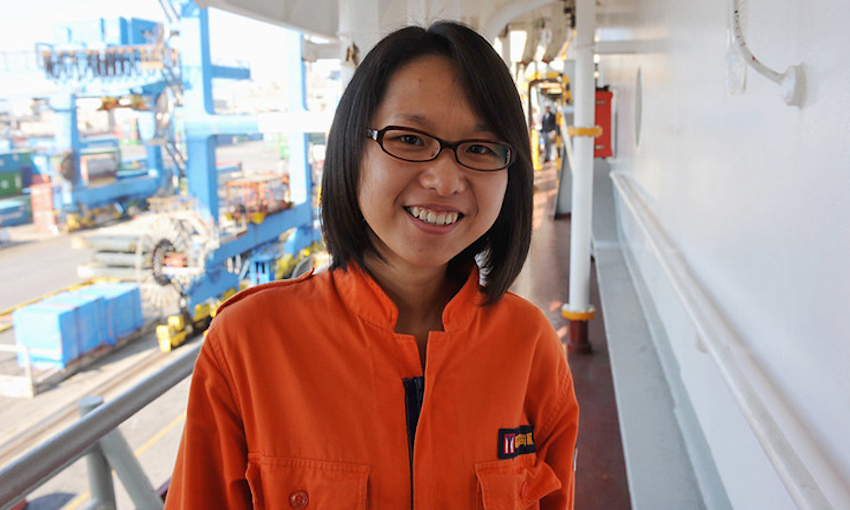By Human Rights at Sea, a nongovernmental organisation that advocates for the human rights of people at sea
THE RightShip Crew Welfare Self-Assessment Tool as part of the Seafarers Code of Conduct initiated by the Sustainable Shipping Industry (SSI) does not meet basic tests for public transparency, accountability, or remediation, while the flawed self-certification process includes the failure to identify and report egregious abuse and abusers through transparent public disclosure.
Launched on 12 October 2021 by SSI, the code of conduct and integrated self-assessment tool is stated as being developed to protect the human rights and welfare of the world’s nearly 2 million seafarers. It was developed by industry group SSI and the Institute of Human Rights and Business (IHRB) in association with the Rafto Foundation.
It states that “the initiative aims to support a safe, healthy and secure onboard work environment, and goes beyond the ILO Maritime Labour Convention (MLC) to focus on the full spectrum of seafarers’ rights and wellbeing, from fair terms of employment and minimum crewing levels to the management of grievance mechanisms.”
As an integral part of the code’s promulgation, RightShip launched a crew welfare self-assessment tool.
The platform states that it provides guidance on how to adopt the code of conduct, as well as how to track progress against three levels of accreditation, those being: basic, intermediate, and excellent. This results in the entity submitting their data receiving a crew welfare badge which is stated as being able to “showcase crew welfare commitment”.
Unfortunately, the crew welfare badge accreditation is meaningless without independent oversight and transparent reported benchmarking publicly evidencing client improvements on a case-by-case basis.
Further, the accreditation cannot be deemed credible if it cannot and will not address cases of human or labour rights abuse due to commercial considerations.
Flawed data submission and collection
In its current form, the self-assessment tool collates data submitted by client company employees.
It is highly unlikely that a company representative will submit any issues of concern, including abuses of human and labour rights due to a clear conflict of interest, internal concerns over adverse publicity, and the ultimate requirement for the protection of commercial reputation.
Further, it is not clear as to the levels of training, awareness, or experience of the individuals’ submitting reports in respect to their human and labour rights competencies.
Lack of public transparency and accountability
Factually, RightShip makes it clear on their website that “data submitted via the RightShip Crew Welfare Tool is not reviewed nor verified and will not affect your RightShip Safety Score, GHG Rating, Vessel Vetting process or Dry Bulk Inspection outcomes.”
Further, it states: “Self-assessments are stored securely in our cloud, with individual responses not shared with third parties outside your company.”
At the launch webinar on 19 October 2020, which is no longer available to view online, such issues were raised in relation to transparency, reporting, routes to effective remedy and accountability. During the launch, ITF also questioned the validity of self-assessment.
In short, there is a lack of corporate transparency or accountability due to the lack of review or verification by independent human rights experts outside of the involved stakeholders. This is compounded by adverse welfare data not impacting on any other aspect of vessel operation, vetting, or inspection as stated by RightShip.
Ten points of concern and clarification
Human Rights at Sea has repeatedly raised 10 points for clarification to SSI, and at the time of writing awaits clarifying responses and assurances for addressing improvements.
- Will SSI and/or IHRB be publishing an annual list of all entities who have completed the self-assessment questionnaire through RightShip and received RightShip badged accreditation?
- How will SSI and/or IHRB provide accountable oversight and access to victim remediation for any direct reporting or other indications through RightShip of human, labour, or social rights abuses in the supply chain?
- How will SSI and/or IHRB record and hold accountable any entity’s failure to improve year-on-year through the annual IHRB report?
- We noted ITF’s articulated concern about the credibility of self-assessments in the online video recording, so why was this point not highlighted in the profiling email? Should this not be corrected to fairly avoid potential perception around misinformation?
- Will SSI and/or RightShip hold to account RightShip clients who are found to have fallen short? If so, how? And is RightShip not unavoidably conflicted between their paying current (and potential future) clients and the reporting of any related abuse(s)?
- How will SSI and IHRB be able to demonstrate that those persons who completed the self-assessment form are themselves not conflicted in their reporting as employees of the company?
- Q1.1. The MLC 2006 does not explicitly mention human rights in its text. Which fundamental human rights (not labour rights) are you referring to under what human rights convention(s)? And how will those persons filling out the self-assessment form know the difference and/or be aware of the applicable rights?
- How is worker’s voice included and represented in the self-assessment process?
- Which welfare organisations have been involved in the finalisation of this work?
- How will the self-assessments be independently validated and verified, thereby avoiding conflicts of interest in the development and assessment process?
RightShip reporting of cases of abuse
RightShip has pursued one known case publicly, though had alerted Human Rights at Sea to at least one other case in 2020.
In May 2020, in co-ordination with Human Rights at Sea, it acted decisively in the investigation by the South African Maritime Safety Authority (SAMSA) and local police into the attempted murder of two Tanzanian stowaways by the crew of the Panamanian flagged dry bulk carrier, the MV Top Grace on the 28 March 2020. Hong Kong-based Fairweather Steamship Co, who managed the fleet of five vessels, had its ratings cut by RightShip and was placed on the high-risk list in response to the incident.
Remediation was undertaken, but details about the case subsequently became difficult to obtain, and no further incidents were shared.
Human Rights at Sea comment
As it stands, the development of the SSI Code of Conduct is welcomed. Our independent NGO was engaged by SSI at the start of the process.
In comparison, the RightShip Crew Welfare Self-Assessment Tool can only be currently viewed as a refined corporate ESG exercise that provides highly restricted access to stated non-reviewed and unverified self-assessment statements made by employees of the very companies being awarded a crew welfare badge accreditation. The conflict of interest is unambiguous.
Unless SSI members, including RightShip, can categorically and publicly state that the self-assessment tool will become transparent and accountable in its reporting, this initiative can only be viewed as a data collection exercise conveniently framed as supporting the human and labour rights of seafarers.
Noting the international credibility of those NGOs and welfare organisations involved in the initiative it is urged that this exercise which is currently equivalent to kicking the can down the road on assuring crew welfare must be urgently reviewed and the 10 points responded to and addressed.
To become trustworthy, the RightShip tool and accreditation must focus on public transparency, accountability, and facilitating the bringing of violators of human rights abuse to justice without delay through existing legislative protections. Operating behind a closed-door approach encourages an environment of impunity under a semblance of respectability.
Meantime, counter arguments against naming and shaming are not just weak but are inflammatory to the victims of numerous cases of abuse reported across the sector during the ongoing crew-change crisis of the COVID pandemic.
RightShip must now take a public position between a viable commercial business model and truly protecting the rights of seafarers and victims of reported abuse.
Human Rights at Sea supports the work undertaken on the code of conduct, but it cannot support the Crew Welfare Self-Assessment Tool as it currently stands without undermining our vision to end human rights abuse at sea. SSI members are urged to reflect and act accordingly.
Statement on Conflict of Interest
In 2019 and 2020, Human Rights at Sea received unrestricted donations towards core costs by RightShip. The charitable NGO no longer receives any funding nor support from RightShip.





